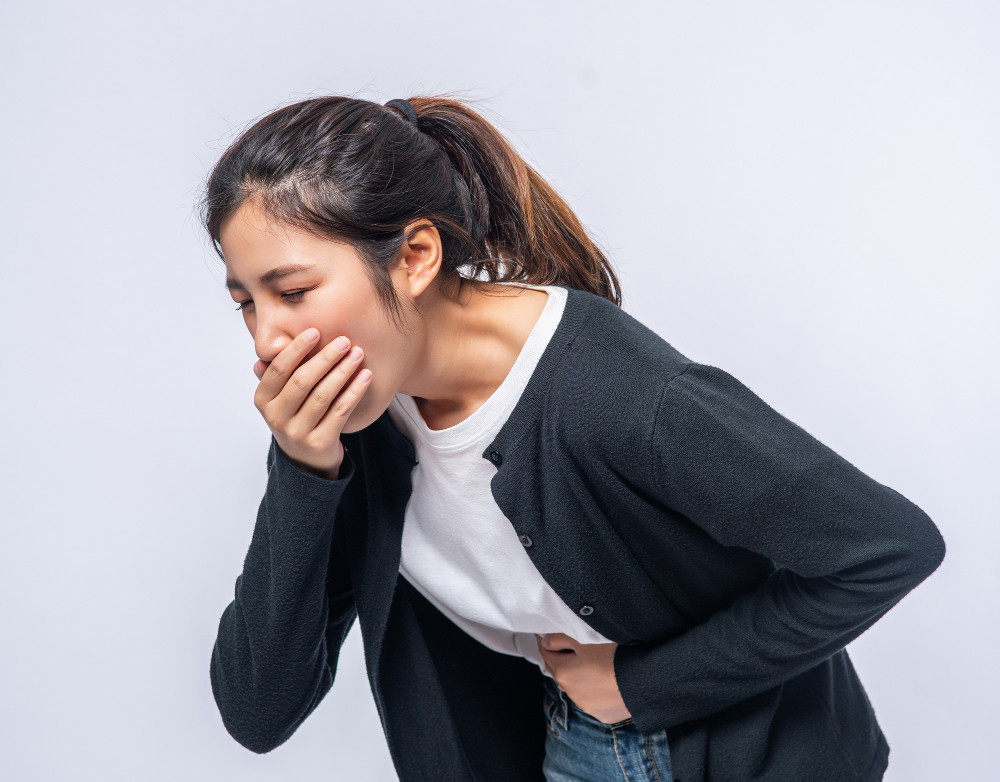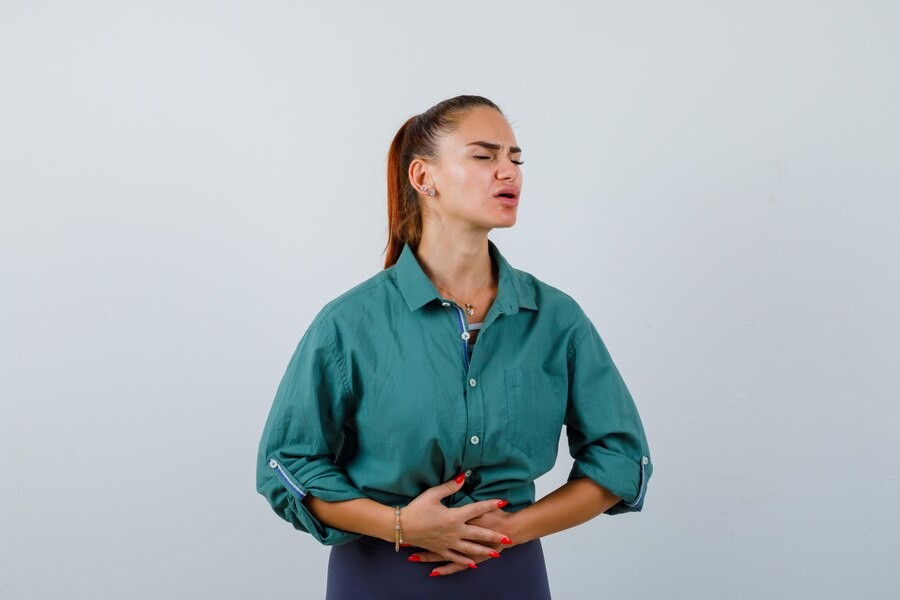Nausea after eating can be caused by overeating or other factors such as pregnancy. Generally, this condition is temporary and resolves on its own. However, if nausea persists and worsens, it may indicate other issues such as food allergies or digestive disorders that require special attention.
Causes of nausea after eating
Nausea after eating can be caused by several factors, including:
Food poisoning
Food poisoning is a common cause of nausea after eating. It often results from consuming food contaminated with germs or toxins. Some habits that can lead to food poisoning include:
- Not washing hands, cooking utensils, or eating equipment properly
- Leaving food out at room temperature for too long
- Not cooking food at safe temperatures
- Food coming into contact with raw ingredients like raw meat or poultry
Symptoms of food poisoning usually start within 30 minutes to a few hours after consuming contaminated food.
Food allergies and intolerances
Food allergies occur when the immune system identifies certain foods as harmful, leading to reactions like nausea, itching, and difficulty breathing. Common allergenic foods include:
- Milk
- Eggs
- Soy
- Nuts
- Wheat
- Shellfish
- Fish
Food intolerance, on the other hand, occurs when the body has trouble digesting certain foods. Symptoms of food intolerance can include bloating, stomach pain, or diarrhea. Foods that can cause intolerance include milk, caffeine, and MSG (monosodium glutamate).
Viral infections
Viral infections such as norovirus can cause stomach flu or gastroenteritis. This condition typically appears 12-48 hours after exposure to the virus. Symptoms include diarrhea, fever, nausea, vomiting, and stomach pain. Norovirus spreads through direct contact, consuming contaminated food, or touching contaminated surfaces and then touching the mouth.
Digestive issues
Several digestive disorders can cause nausea after eating, including irritatable bowel syndrome, GERD (gastroesophageal reflux disease), gastroparesis, pancreatitis, and gallbladder disease.
Medication use
Certain medications can cause nausea and changes in appetite. These include antibiotics, antidepressants, chemotherapy drugs, and pain relievers.
Pregnancy
Nausea after eating can also be a symptom of pregnancy-related morning sickness. Morning sickness usually occurs in the first trimester and tends to improve in the second trimester. In severe cases, like hyperemesis gravidarum, medical treatment may be necessary.
Other health issues
Besides the causes listed above, nausea after eating can also be due to other medical conditions such as diabetes, anxiety disorders, and liver diseases.
Managing nausea after eating
The treatment of nausea after eating is determined by the underlying cause. If your nausea is caused by food allergies or intolerances, the best way to prevent it is to avoid trigger foods.
Doctors may prescribe medications and dietary changes to relieve nausea caused by GERD or gallbladder disease. Surgery may be recommended for severe medical conditions, such as bowel disorders.
To avoid nausea after eating, you can consider the following eating habits:
- Eat small, frequent meals
- Avoid spicy, oily, and sugary foods
- Opt for bland foods
- Limit high-fiber foods
- Avoid large meals two hours before bedtime
- Drink plenty of water
Nausea after eating is usually not a serious health issue. However, if nausea is accompanied by severe stomach pain and vomiting with blood, it is advisable to see a doctor.
If you need medical advice or consultation, you can either visit a doctor or make use of the consultation features that are available in the Ai Care application by downloading the Ai Care application from the App Store or Play Store.
Looking for more tips and health tricks, first aid, and home remedies? Click here!
- Sean Edbert Lim, MBBS
DeSoto, L. (2023). Available from: https://www.health.com/nausea-after-eating-7564447
Cleveland Clinic. (2022). 12 Reasons Why You Have Nausea After Eating. Available from: https://health.clevelandclinic.org/why-do-i-have-nausea-after-i-eat
Kandola, A. (2023). What to know about nausea after eating. Available from: https://www.medicalnewstoday.com/articles/317628
Cervoni, B. (2023). Nausea After Eating: What Causes Unsettled Stomach Symptoms. Available from: https://www.verywellhealth.com/nausea-after-eating-8362669











